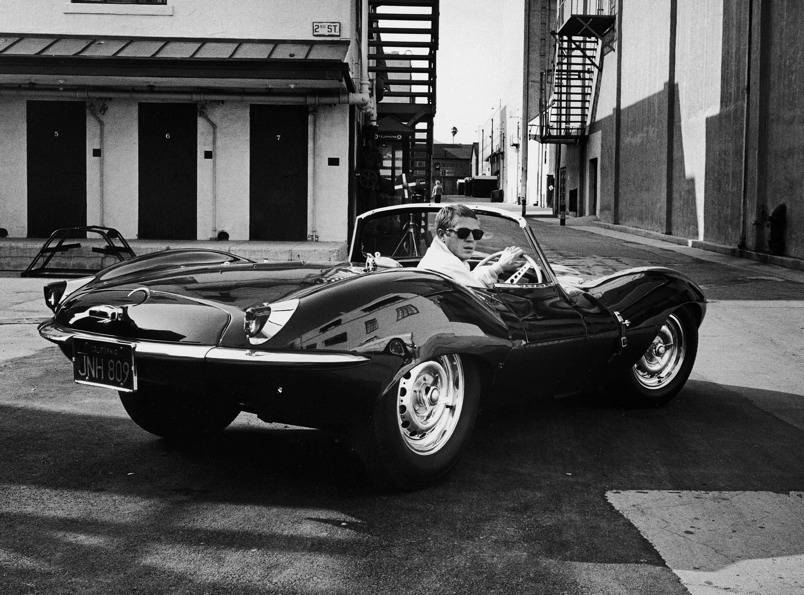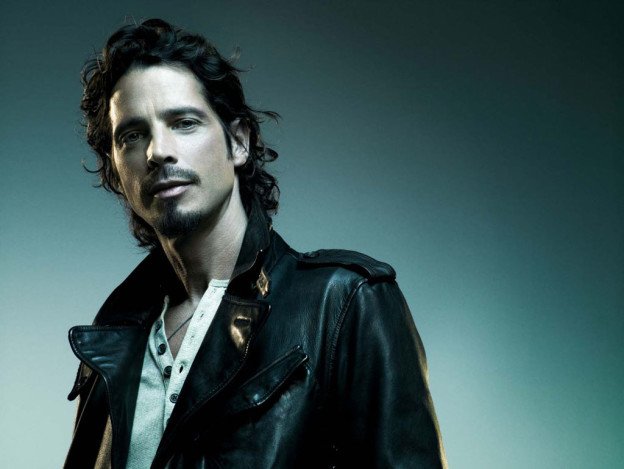The sad and shocking news that Chris Cornell, founder and frontman of both Soundgarden and Audioslave and one of the most gifted rock vocalists of his generation, has died at the age of 52 is still reverberating around the music world. He was found dead in his hotel room in Detroit on May 17th while on tour with his re-formed original band, the great grunge pioneers from Seattle, an apparent suicide. Cornell’s loss as an individual and his loss to rock music as a whole is hard to fully process. Our sincere condolences go out to his family and friends.
Searching With My Good Eye Closed – Badmotorfinger (1991)
Unlike their local peers Nirvana and Pearl Jam, with whom they are most closely grouped, Soundgarden was less true “grunge” than an extension of classic 70s hard rock, albeit with sophisticated lyrical themes and innovative musical techniques. While initially satirizing the over-the-top nature of metal at the time they began in the late 80s — see “Big Dumb Sex” for the apotheosis of this in-your-face, on the nose send-up of hardcore metal misogyny — Soundgarden quickly graduated to a more lyrically complex, more darkly psychedelic metal sound that was uniquely their own. Their real breakthrough was Badmotorfinger, one of the seminal albums of the ’90s in any genre. A borderline concept album, Badmotorfinger was inestimably weird and powerful, featuring guitarist Kim Thayil’s patented Drop D tuning on several hard-hitting classics like “Jesus Christ Pose,” “Outshined,” the soaring & ominous “Searching With My Good Eye Closed” and the punishing and mystical “Room A Thousand Years Wide.” Another track from this awesome album, “Mind Riot,” seemed to point in the direction that Cornell and the band would take in future: hard-edged, certainly, but with an almost ballad-like emotional intensity and strikingly original lyrics of searching strangeness and loss.
I was crying from my eye teeth and bleeding from my soul
And I sharpened my wits on a dead man’s skull
I built an elevator from his bones
Had climb to the top floor just to stamp out the coals (I’ve been caught in a mind riot)
Candle’s burning yesterday
Somebody’s best friend died
I’ve been caught in a mind riot
Mind Riot – Badmotorfinger (1991)
After the explosion of Grunge as a distinct genre onto the national scene, fueled by their own success and that of Nirvana, Pearl Jam and the Screaming Trees among others, Soundgarden followed up Badmotorfinger with an even bigger hit, Superunknown. The new album was characterized by a subtle shift away from pure heavy metal and more emphasis on mystical guitar driven psychedelia. Propelled by the huge MTV hits “Black Hole Sun” and “Spoonman,” the album also featured other classics like the title track and the propulsive “My Wave.”
Superunknown – Superunknown (1994)
The band also honed their penchant for extreme pessimism with the beautiful downers “The Day I Tried To Live,” “Like Suicide” and the very heavy “Mailman” and “4th of July.” With a focus on loners and losers, as well as recurrent vivid Catholic imagery and the patented Chris Cornell lyrical technique of juxtaposition of dark desires and diametric outcomes, “Fell On Black Days” was another prime example of that masterfully downbeat style:
So what you wanted to see good
Has made you blind
And what you wanted to be yours
Has made it mine
Don’t you lock up something
That you wanted to see fly
Hands are for shaking
No, not tying, no, not tying
Fell On Black Days – Superunknown (1994)
Superunknown was both commercially well-crafted and also unique among its more punk rock grunge compatriots, less focused on rapid fire rage and more on broader themes of profound and disturbing alienation that stretched out in their 4:30 to 5 minute songs. If anything, you could put Nirvana and Pearl Jam on one side and Soundgarden and Screaming Tress on the other, with Alice and Chains acting as a middle axis of the influences between those respective psychedelic, metal and punk instincts.
Burden In My Hand – Down On The Upside (1996)
After the immense success and seemingly endless tour in support of Superunknown, the band found themselves back in the studio to work on their 5th studio album. Despite inevitable tensions, Down On the Upside would be a definite artistic success if not the commerical blockbuster that Superunknown turned out to be. Cornell was now pulling the band into a less consistently heavy approach, and despite the push for “Pretty Noose” to be the lead single, other, more nuanced tracks were superior. The more Beatle-esque, ballad-like aspects of their big Superunknown hit “Black Hole Sun” found logical development in the slow-building powerhouse “Burden In My Hand” and the lesser known gems “Zero Chance” and “Tighter and Tighter.” But after taking the second slot behind Metallica for the epic 1996 Lollapalooza festival (that year’s lineup also featured the Ramones, the Screaming Trees, The Wu-Tang Clan and Rancid among other standout acts) and more grueling time on the road in support of Down on the Upside, Soundgarden decided to call it quits (they would reunite 11 years later to produce new music and, as mentioned above, were on tour when Cornell tragically died).
Zero Chance – Down On The Upside (1994)
Outside of Soundgarden, Cornell was nearly as prolific. Of course he is particularly identified with the Temple Of The Dog project. Originally a one-off featuring Cornell and the remaining members of Mother Love Bone, a legendary Seattle glam rock band, Temple of the Dog was a tribute to MLB’s lead singer and piano playing showman, Andrew Wood. The flamboyant Wood, who was actually Cornell’s roommate for a time, overdosed on heroin in 1990 just as the Bone was about to hit the big time. While Wood was decidedly more Axel Rose than Eddie Vedder (I strongly recommend checking out Mother Love Bone as a fascinating alternate possibility for a very different piano-metal direction of the still-nascent Seattle scene), the remnants of his band would go on to form the more conventionally “grunge” and ruminative Pearl Jam, with Vedder as new lead vocalist, who made his recorded debut duetting with Cornell on the now-classic anthem “Hunger Strike.” So the reverberations of that fortuitous collaboration were obviously profound and, as they say, the rest is history.
https://www.youtube.com/watch?v=GbG9CNCettk
Cornell’s solo work was also of a very high caliber. His initial post-Soundhgarden effort, Euphoria Morning, recorded with members of the band Eleven, was very much a continuation of where he was heading musically on Down On The Upside. Euphoria Morning failed to find much commercial success but in retrospect looks like a major work, with consistently strong tracks like “Can’t Change Me”, the astonishingly good apocalyptic vocal tour de force “Preaching the End of the World” and what could be Cornell’s unintentional epitaph, “Disappearing One.”
Preaching The End Of The World – Euphoria Morning (1999)
Cornell released the slicker Carry On several years later in 2007, featuring actual straight up love songs, as well as an1 oddly influential metal slow jam cover of Michael Jackson’s “Billie Jean,” the brilliantly disturbing “Killing Birds” and “You Know My Name,” the theme song for the first Daniel Craig-era Bond reboot, Casino Royale, a very successful and fitting update to the traditional bombast of the Bond films’ themes. In 2009 he also collaborated with R&B and hip-hop producer Timbaland for the highly electronic Scream, which appalled many of his longtime fans but saw him earn his best solo album chart position at #10 on the Billboard 200.
Killing Birds – Carry On (2007)
Of course, no bio of Chris Cornell would be complete without delving into his remarkable stint as frontman for the supergroup Audioslave. When the ultra-political Rage Against the Machine’s charismatic frontman Zach de la Rocha abruptly left the band in 2001 their producer Rick Rubin played matchmaker between the three remaining members, including the fascinatingly unique guitarist Tom Morello, and Cornell. After hitting it off immediately the four had a creative explosion and Audioslave was born. Over the course of three albums between 2002 and their split in 2007, Audioslave redefined an angular hard rock sound and Cornell and Morello managed to craft something distinct from their earlier claims to fame. Morello benefitted from the expansion of his unusually staccato guitar technique into more conventional rock directions while Cornell got the benefit of the Ragers angular, asymmetrical approach to music that was so distinctive from his own primarily Sabbath-Zeppelin frame of reference.
Like A Stone – Audioslave (2002)
Despite his oft-stated desire not to emulate Rage, Cornell was also inpired by the new company to write overtly political songs for the first time, with “Wide Awake” from Revelations being the most successful of these along with the more oblique “Running From The Sound Of A Gun” and “Set It Off” from the eponymous debut album. With such kick-ass rockers as “Like A Stone,” “Show Me How To Live,” “Be Yourself” and the fantastically phantasmic “I Am The Highway” in their repertoire, Ausioslave were also an amazing live band. Among their extensive tours they even performed a legendary concert in Cuba in 2005, well before the recent easing of the US embargo. Even more remarkable, Cornell seemed to be improving as a vocalist, honing his technique to preserve his remarkable range and incorporating new flourishes that gave an almost Middle Eastern, call-to-prayer quality to certain of his gymnastic arpeggios and ululations.
It was also during this highly successful period that Chris’ problems with alcohol and prescription pills came to light when he had to take time out for a rehab stint during the early days of Audioslave. If it appeared that Cornell had escaped the specter of dangerous drug use that would take the lives of so many of his peers — Andrew Wood, Kurt Cobain, Layne Staley, Scott Weiland — this was the first hint to the general public that he hadn’t. Depression may also have played a part not only in Cornell’s self-medication but also his abrupt suicide, as may have the reported administration of the prescription anti-anxiety med Ativan, which is known to have severe psychological side effects, especially if mixed with other drugs or alcohol. We’ll never know what was going on in Chris’ mind the night he ended it all but it is ineffably sad what he left behind, most profoundly his wife Vicky and his three children from two marriages. The loss to his family and friends is the greatest, of course, but all his fans are also bereft at his passing. The Seattle scene in particular connected with the often darker facets of angst and confusion experienced during young adulthood and its icons reflected that turmoil in their personal lives, making it highly impactful on those of us who grew up while this transformative music was being made. Having made it to his 50s and survived so long surrounded by that high octane ultra-expressive, ultra-emotional environment, achieving great and broad success along the way, one might have thought Cornell could have escaped the clichéd gravitational pull of Death By Rock And Roll. But it wasn’t to be and the road and the lifestyle have claimed yet another great all too soon.
Disappearing One – Euphoria Morning (1999)
So the man is gone but the music lives on. There will never be another vocalist like Chris Cornell. In the years to come I have no doubt that his vast body of work will stand the test of time and grow in stature. To paraphrase one of his best songs: for his legion of fans he is is now so sadly our disappearing one but in the beauty of his voice and his music we will see he’ll never disappear for long.







